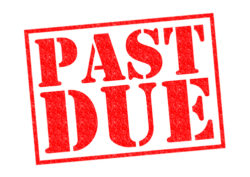 New York debtor protections are some of the strongest in the country, prohibiting debt collectors from withholding vital information including date of expiration for the debt and debt validation.
New York debtor protections are some of the strongest in the country, prohibiting debt collectors from withholding vital information including date of expiration for the debt and debt validation.
This essentially means New York debtor protections require debt collection companies to disclose whether or not a debt has expired and cannot be collected, as well as prove to the consumer the debt belongs to them and is valid.
New York debtor protections were recently updated in early 2015, when New York Governor Andrew Cuomo and the New York Department of Financial Services implemented new debt collection policies into state law.
These new regulations focused on the statute of limitation disclosures for debts, disclosures of the accounts in questions, debt validation, and email communication between the debtor and collector.
“We’re rolling out tough new regulations that protect borrowers and help crack down on illegitimate debt collection practices. These new tools and disclosures will protect New Yorkers across the state, and I am pleased that our administration is leading the way on this issue,” Governor Cuomo stated.
Under New York debtor protections, debt collection companies cannot collect on a debt already expired and they cannot engage in any abusive or misleading activities to intimidate the consumer into paying. The regulations essentially made the process of debt collection less stressful and more transparent, making the situation much easier for consumers.
The updated New York debtor protections also apply to the following debt collection letters including:
- Sending confusing letters, which are deliberately worded in a confusing or ambiguous manner to intimidate consumers into paying the debt.
- Communicating with third parties regarding the debts
- Making threats against the consumer
- Making robocalls or letters sent, which are specifically mean to harass and intimidate
- Adding fees or collection charges to the debt
- Trying to collect expired debts
In addition, New York debtor protections also require the debt collection to provide detailed information regarding the debts owed and any other fees that may incur.
Overview of the FDCPA (Fair Debt Collection Protection Act)
While residents of New York enjoy the enhanced protections against abusive debt collection practices, the rest of the United States are encompassed by the FDCPA (Fair Debt Collection Protection Act). The FDCPA is a federal law that was passed by Congress in 1978, to help consumers fight against abusive and unfair debt collection practices often used by companies.
While proper debt collection is still legal, the FDCPA requires collection companies to adhere to strict conduct when speaking to consumers. The FDCPA applies to any person or company engaging in debt collection activity, which includes debt collection agencies, companies, agents trying to collect on payments past due.
If a debt collector is found to be in violation of the FDCPA, the company could face up to $1,000 per violation along with any actual damages suffered. Consumers who wish to file a FDCPA lawsuit, should prepare by collecting pieces of evidence including:
- Conversations with debt collector, noting any abusive language or threats potentially used
- Keep all debt collection letters, and highlight the account specific information about the debt
- Determine if validation of debt is given
- Determine age of debt, and if it is passed statue of limitations
Join a Free New York Unfair Debt Collection Class Action Lawsuit Investigation
If you live in New York and a lender or debt collector engaged in unfair debt collection practices, you may have a legal claim and could be owed compensation for violations of the Fair Debt Collection Practices Act (FDCPA).
DISCLAIMER: Debt collection itself is not illegal. However, debt collection firms collecting on consumer debts must adhere to the FDCPA. Even though debt attorneys are investigating these companies, their debt collection practices may be legal.
ATTORNEY ADVERTISING
Top Class Actions is a Proud Member of the American Bar Association
LEGAL INFORMATION IS NOT LEGAL ADVICE
Top Class Actions Legal Statement
©2008 – 2025 Top Class Actions® LLC
Various Trademarks held by their respective owners
This website is not intended for viewing or usage by European Union citizens.















One thought on New York Debtor Protections updated for Debt Validity and Debt Expiration Disclosure
Please add me to the class membership.